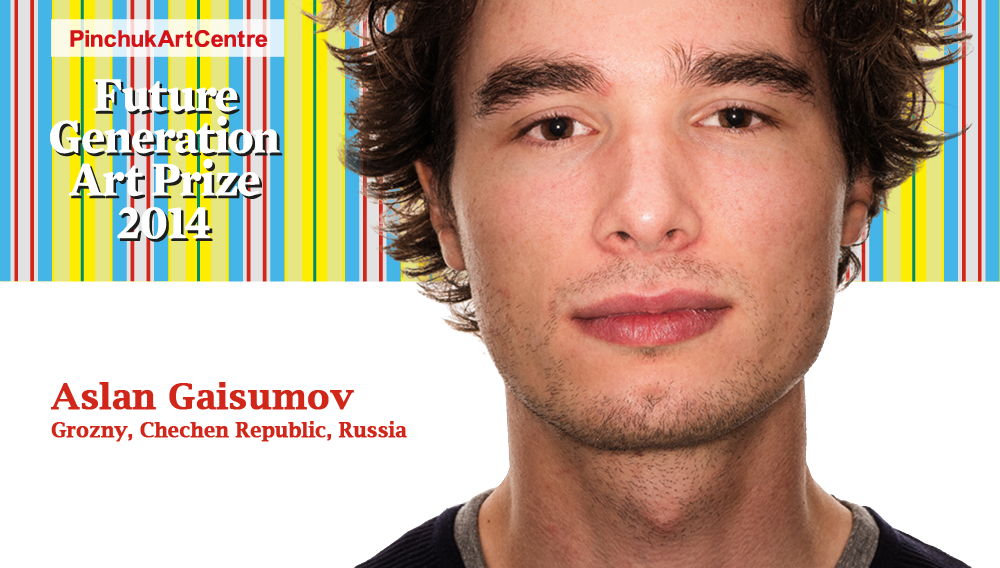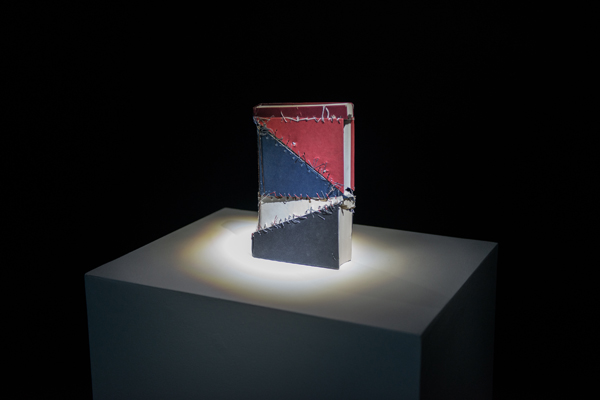Tuesday through Sunday from 12:00 until 21:00
Closed Monday
Admission is Free

Special Prize Winner of the Future Generation Art Prize 2014

Aslan Gaisumov was born in 1991 in Grozny, Chechen Republic, Russia. He lives and works in Grozny and Moscow. Gaisumov graduated from the Institute of Contemporary Art in Moscow (2012) and was granted residence at Bad Gastein, Austria in 2013. His work was shown in group exhibitions at the 5th Moscow Biennale of Contemporary Art (2013), Festival TodaysArt in the Hague (2013), and in parallel program of Manifesta 10 (2014). Gaisumov’s solo exhibitions took place in Moscow (2011) and Berlin (2014). He won the main prize of the 3rd Moscow International Biennale for Young Art in 2012.

The main character of Aslan Gaisumov’s video project is the city of Grozny. The city has been almost entirely rebuilt by Chechnya’s incumbent president Ramzan Kadyrov. The video is a succession of panoramic city views with grandiose theatre buildings and concert halls, Grozny City’s high-rises, fountains with colourful illuminations, new mosques, museums and monuments intermingled with government regalia: the president’s portraits, state slogans and the names of state organizations. The combined effect reflects the government’s policy of prosperity and well-being. The video allures to soviet era documentaries. Indeed, even the music featured in the project is the original score of the 1978 documentary “USSR Cities. Grozny” suggesting the project’s possible ambition to rival soviet films and their skilful editorial work of turning imagery into propaganda.
However, beneath the masqueraded prosperity, like the reverse side of a ceremonial portrait, gleams a different image, that of Grozny’s half-destroyed Cultural Centre, where the video is being shown. This contrast in the register of perception is a litmus test of the official image of Grozny. It makes one think of the past war and the price paid for the demonstrative well-being. Just like the city itself, Aslan Gaisumov’s project is an intersection of the present and the past, proving once again that history is always written in the present (by Elena Yaichnikova).
